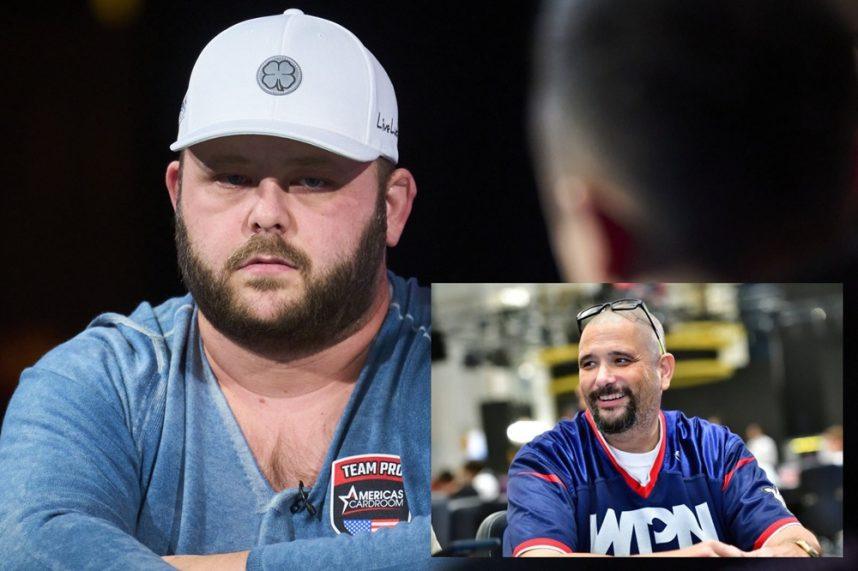Poker’s Scott Ball Sues ACR Poker for $30M Contract Breach, Defamation
Poker player and talent agent Scott Ball is suing offshore poker platform ACR Poker for breach of contract, claiming that social media influencers on his books were never paid for promoting the site, formerly known as America’s Card Room.
 Chris Ball, main picture, believes that ACR Poker boss Phil Nagy, bottom right, defamed him during an episode of the Only Friends podcast and later dared him to sue. (Image: PokerGO/ACR)
Chris Ball, main picture, believes that ACR Poker boss Phil Nagy, bottom right, defamed him during an episode of the Only Friends podcast and later dared him to sue. (Image: PokerGO/ACR)Two-time WSOP bracelet winner Ball, who runs the agency End Game Talent, is seeking at least $30 million, restitution for unjust enrichment, legal fees, and damages for defamation and trade libel.
The suit, filed just before Christmas in the San Diego Superior Court and seen by PokerNews, personally names the owner of ACR Poker, Phil Nagy. The defamation claim relates to comments made by Nagy after the spat between the two parties went public.
‘Malice and Intent’Nagy called into the Only Friends Podcast last August to claim he had fulfilled his financial obligations to End Game. He also appeared to imply that it was Ball who had failed to pay the influencers. The lawsuit claims these comments were false and made with actual malice and intent to damage Ball’s reputation and deflect blame for [the defendant’s] own conduct.
Defendant published false and defamatory statements about Plaintiffs, including but not limited to public statements attributing payment failures to Plaintiffs alleged failure to follow through on their commitments and claiming Plaintiffs dropped the ball, ” per the lawsuit.
Ball claims that immediately after Nagy’s appearance on the podcast, a text message exchange occurred between the two in which Nagy dared Ball to “sue me.”
Ghosted on PaymentsNagy’s comments followed public statements by influencers such as esports YouTuber Ludwig Ahgren and poker and chess streamer Alexandra Botez claiming they had been ghosted by ACR on payments.
The contract between ACR and End Game was worth $29.7 million, consisting of nine monthly installments of $3.3 million from June 1, 2023 to April 1, 2024, according to the lawsuit. However, only three $1.1 million installments, paid in bitcoin, were ever received, per the complaint.
Ball was sued earlier this year by Loaded, a Los Angeles management firm representing some of the influencers. In June, Loaded was granted a default judgment for $718,331, according to Los Angeles County Court records seen by Poker.org.
In November, Ball tried to have the judgement set aside or vacated. In the latest lawsuit, Ball claims he is unable to settle the judgment because of ACR’s alleged nonpayment.







